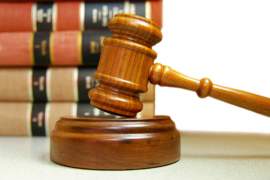
Election of the Speaker Overview

Popular In Constitution
Purpose Of Lifetime Appointment And Pros And Cons Enumerated Powers Bicameral Legislature Background Article 3 Of The Constitution We The People 1st Amendment Who Wrote The Constitution Judicial Review Equal Protection Clause 5th Amendment 10th Amendment Three Fifths Compromise
The Speaker of the House of Representatives acts as the presiding officer for the House. The position was created in 1789 by the United States Constitution under Article I, Section 2: "The House of Representatives shall chuse [sic] their Speaker and Other Officers." The Speaker has various roles that have changed throughout time since the office's original implementation. Originally, the Speaker had no real power, and its position had no real influence. However, the role of Speaker forever changed once Henry Clay took office. Clay used his influence to ensure the passage of legislation that supported his and his party's agendas, as well as actively participating in debates, which was not done by prior Speakers.
Clay's influence continued past his tenure, for the position of Speaker began to garner more political power, and thus shaping the role and responsibilities the office holds today. Aside from being the presiding officer of the House of Representatives, the Speaker also combines several roles such as the leader of the majority party in the House, as well as being a regular active member and representative role of the House.
The Speaker of the House of Representatives is elected by the comprising members of the House. The election process is based on a simple majority vote. After a candidate is elected, the person is to be sworn in by the Dean of the House, which the longest serving member of the House. A new Speaker is elected when the position is rendered vacant, or if there is a change in the majority party in the House. Each major party in the chamber will nominate a candidate to be elected for the position of the Speaker.
Under Constitutional law, it is not explicitly stated that the Speaker be required to already be a member of the House of Representatives. However, history has proven that each Speaker elected has been a member, thus setting a precedent for subsequent elections that has not been codified into law. Members of the House will typically vote for the nominee for their respective party, but their vote can be placed for any of the nominees to be considered.
A majority vote is required by the Constitution's provisions, however, less than a majority vote can be needed to elect a new Speaker because of absentee Members of the House placing a vote as "present." If there is no candidate receiving a majority vote, the election process will be repeated until a Speaker is elected.
Though the role of the Speaker has changed over time, the current roles and duties of the Speaker are as follows:
Administration of the oath of office to new members of the House.
Calling the House to order.
Preserving order within the Chamber.
Appointing of chairmen to committees, such as the Committee of the Whole, and other conference committees.
Ability to vote for House matters
Though not restricted under Constitutional law, the Speaker of the House will only exercise the right to vote in matters in the case that a tie-breaker is needed to settle a decision.
Determining the agenda of the House with the Majority Leader.
Confer with the President and the Senate on political issues.
Spokesman for the Presidential Administration.
This will only typically occur if the Speaker of the House and the President both belong to the same political party.



















